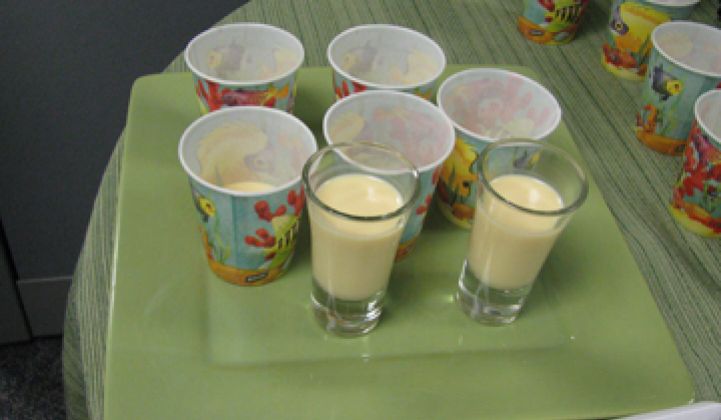Solazyme, which turns algae into fuel and chemicals, has signed a deal with Bunge Global Innovation, a subsidiary of agribusiness giant Bunge, to build a facility in Brazil to convert microbes and sugarcane juice into industrial chemicals.
The plant, to be built at one of Bunge's existing sites, will churn out 100,000 metric tons of triglyceride oils a year. The plant should begin operations in 2013 in time for that year's harvest. Solazyme just recently announced a 1,500-ton plant in Peoria, Illinois that will become fully operational in the first half of 2012. While the Peoria plant will be doubled in size in around a year, the Bunge deal will dramatically increase the company's production potential.
Solazyme, which held a public offering earlier this year, grows algae by feeding it sugar in fermentation tanks. The sugar has always been a sticking point for some because sugar means added costs. Many algae companies claim they will be able to grow algae by feeding the single-cell bugs a steady diet of free sunlight and carbon dioxide. The photosynthetic method, however, requires producers to extract their algae from water, a thorny and expensive challenge that has vexed researchers since the late '70s when industrial algae research began. Solazyme doesn't have to worry about water, but it does need to keep a tight lid on sugar costs.
In the Brazilian plant, Solazyme will feed sugar cane thick juice to algae and produce oils on-site. The thick juice is the first, unrefined fluid that comes out of the crush. A large number of companies are trying to produce alcohol and other chemicals out of the woody bits. Sugar from waste would likely be cheaper, but again it also represents a challenge on a large, industrial scale at the moment.
Algae oils can be used in a wide variety of products. The company currently produces algae-based jet fuel for the U.S. Navy -- 283,000 gallons have been shipped so far under two separate R&D contracts. It also sells an anti-aging cream called Algenist. Sephora and The Shopping Channel have agreed to distribute it. (That's algae milk in the picture.)
Ultimately, as the cost of producing oil from algae comes down, Solazyme will sell a renewable form of diesel for the fuel market.
In the second quarter, Solayzme reported revenue of $7.4 million, up from $4.4 million a year ago, but losses of $17 million. Welcome to the green technology world.



